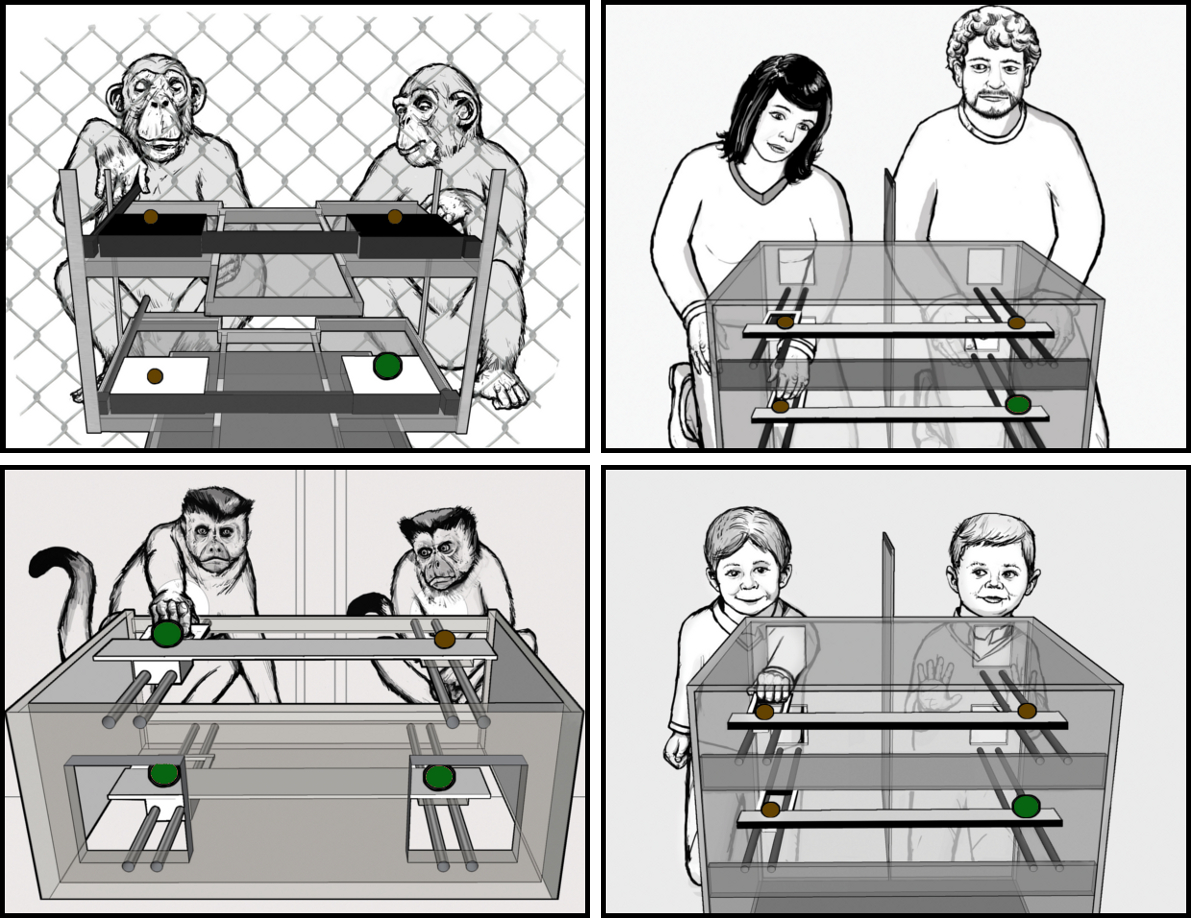Abstract: Humans are strategic cooperators; we make decisions on the basis of costs and benefits to maintain high levels of cooperation, and this is thought to have played a key role in human evolution. In comparison, monkeys and apes might lack the cognitive capacities necessary to develop flexible forms of cooperation. We show that Guinea baboons (Papio papio) can use direct reciprocity and partner choice to develop and maintain high levels of cooperation in a prosocial choice task. Our findings demonstrate that monkeys have the cognitive capacities to adjust their level of cooperation strategically using a combination of partner choice and partner control strategies. Such capacities were likely present in our common ancestor and would have provided the foundations for the evolution of typically human forms of cooperation.
Category: Prosociality
Selective and contagious prosocial resource donation in capuchin monkeys, chimpanzees and humans

